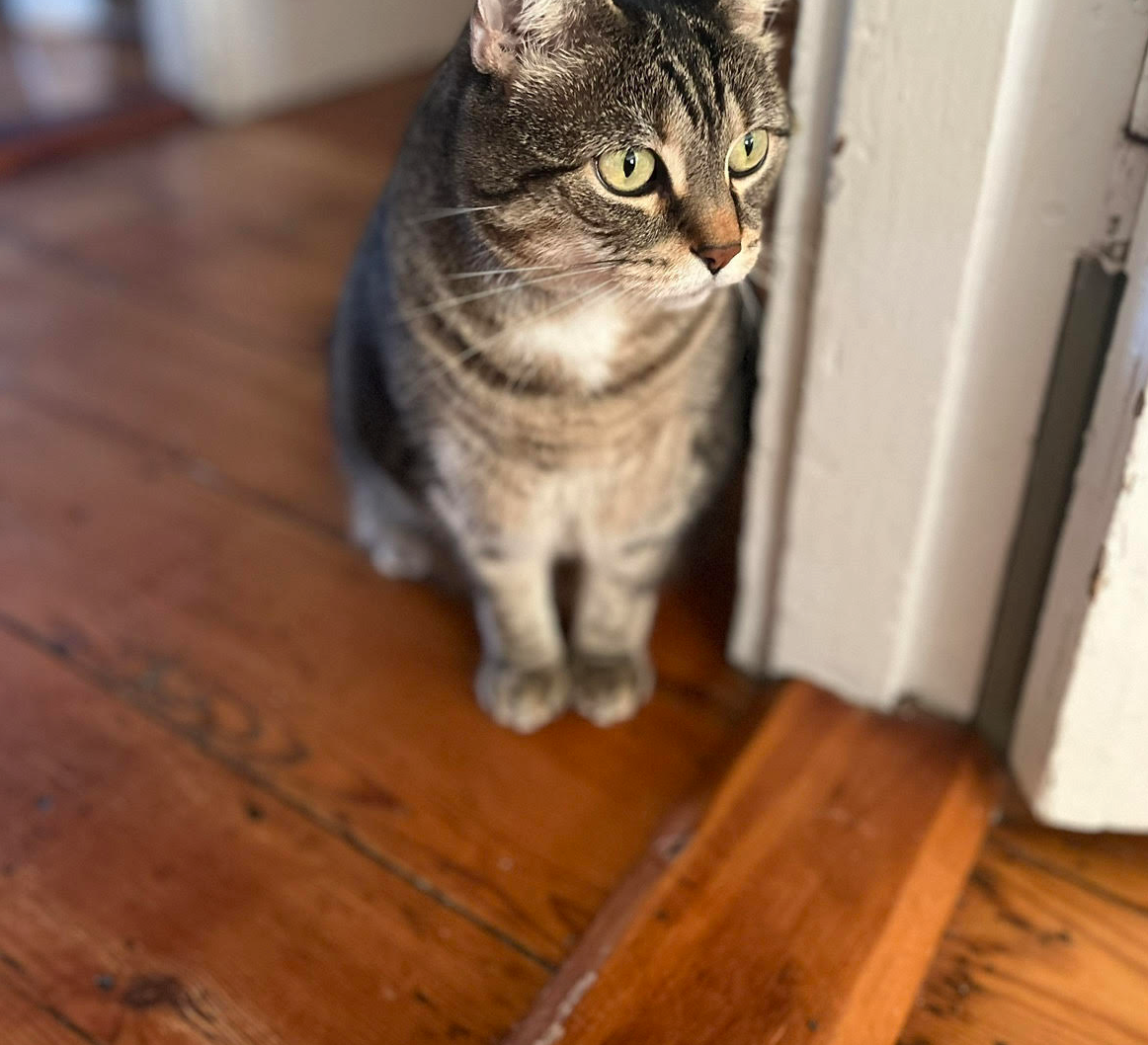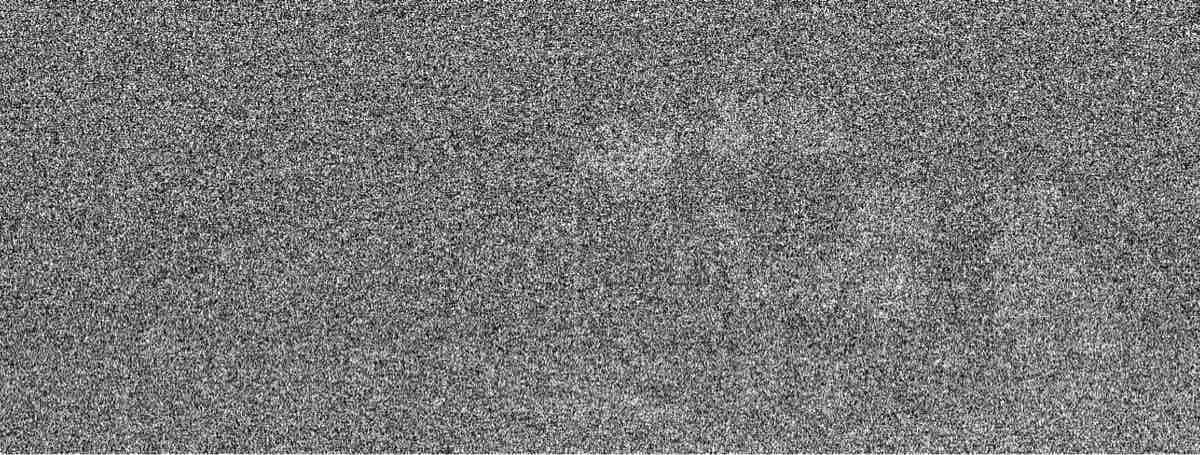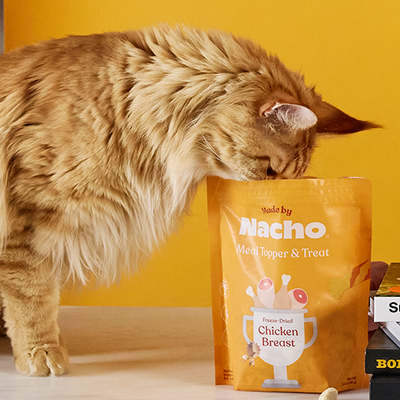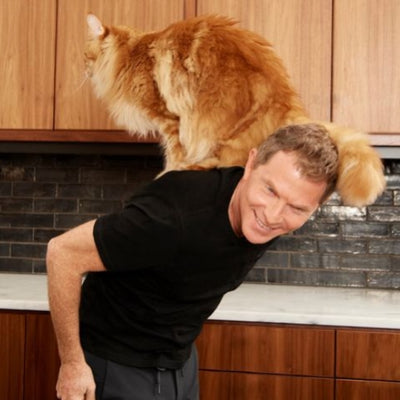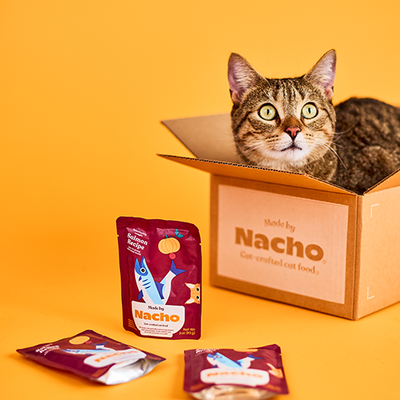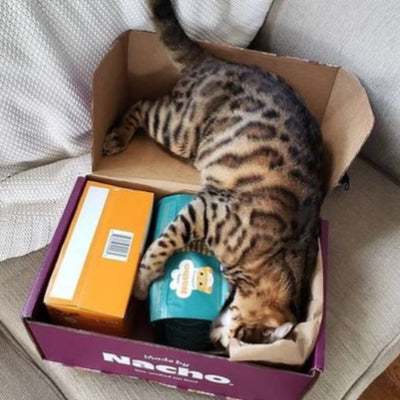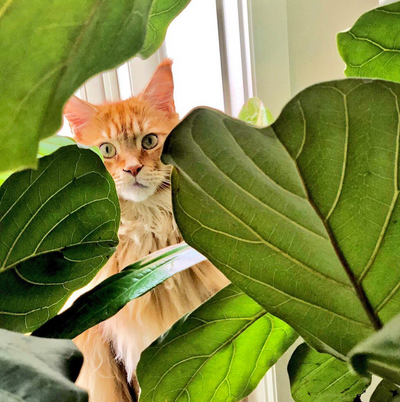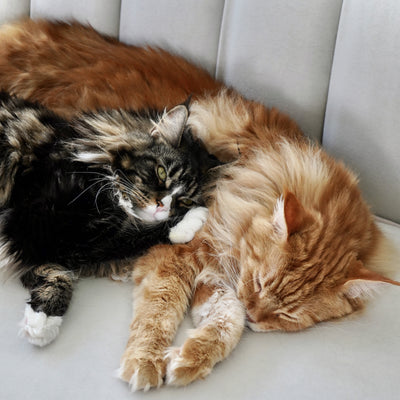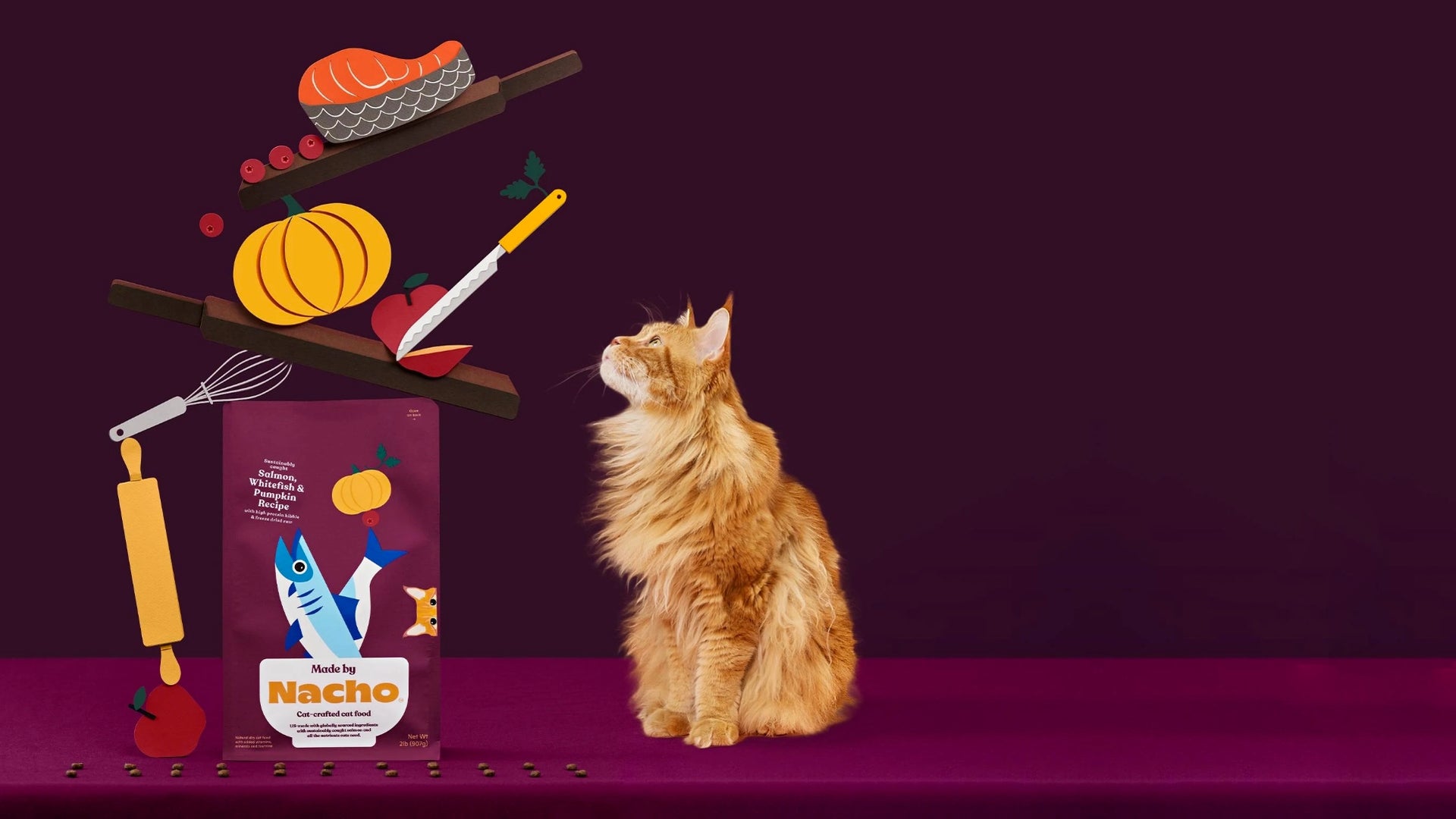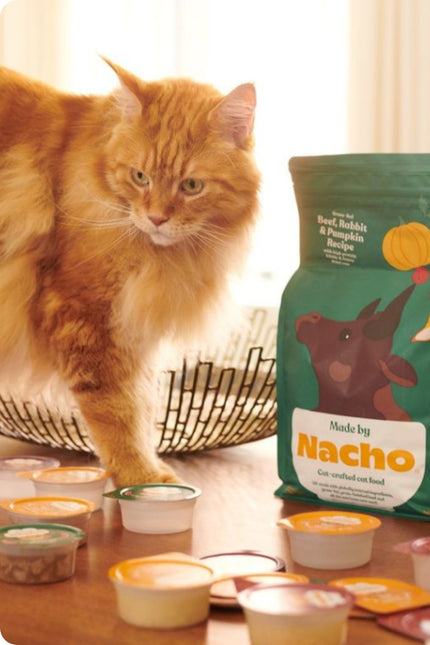This blog post is intended for informational purposes only. It is not a substitute for professional veterinary advice, diagnosis, or treatment.
While we love our cats just the way they are, sometimes you may have a sneaking suspicion (or were told outright) that they may need to watch their figure. So we asked Dr. Katja Lang, Made by Nacho Veterinary Consultant (and the Chief Medical Officer at Heart of Chelsea Veterinary Group), about how to find out your cat’s ideal weight, how to help your cat lose weight, and yes, exercise for cats.
Ideal weight? It's not so simple
The ideal weight for a cat depends on many factors, including breed, age, genetics, and body condition. A healthy adult cat should weigh between 8 and 10 pounds for a small breed and between 12 and 16 pounds for a medium to large breed (say, a Maine Coon!). "The best way to assess your cat's ideal weight is by looking at their body condition," said Dr. Lang. "They should have a small amount of fat covering the ribs, a noticeable waistline behind the ribs, and a minimal "fat pad" on the ventral abdomen." (Ed. Note: ventral abdomen = the "indoor kitty pooch" in front of your cat's back legs. We looked it up.)
Need a little help figuring out your cat’s body condition? Dr. Lang shared this handy feline body condition chart for easy reference.
High-quality, high-protein food is key
When choosing your cat's food, the most critical ingredient is high-quality protein. It should be the first ingredient listed in the ingredient panel (Ed. Note: premium protein is always #1 at Made by Nacho) Cats are obligate carnivores, so they require a lot of protein to meet their nutritional needs. As a rule, avoid cat food that uses fillers, such as corn and wheat, as the primary ingredient.
Keep things balanced
In addition to high-quality protein, cats also need a balanced mix of fats and carbohydrates. Fats provide a source of energy and help to maintain healthy skin and fur, while carbohydrates provide the necessary fiber for proper digestion (and all-day energy!)
Why yes, your cat can exercise
According to Dr. Lang, your cat can (and should!) exercise. "It's easier said than done, but playing with a laser, or toy mouse, hiding their food, so they need to "hunt" for it, teaching them to fetch for high-value treats (like our freeze-dried raw protein treats) or toys, all make for great exercise."
But how do I help my cat lose weight?
Here are four of Dr. Lang’s top tips
Wet food for the win
Dr. Lang says wet cat food is typically higher in protein and lower in carbohydrates. As a result, most cats will lose weight if you stick to primarily wet food.
Avoid excess treats and table food
Treats should comprise no more than 10% of your cat's energy requirement.
Exercise!
Enrichment is critical to your cat's overall happiness and well-being. So, in addition to her suggestions above, Dr. Lang says you can try all manner of toys (think: feather wands and puzzles) to see what strikes your cat's fancy and keeps them active.
Go slow
"We don't want cats to lose weight too quickly as it can be dangerous for their liver," said Dr. Lang. "The goal is no more than 1% of their body weight per week.”
Remember, you (and your vet) know your cat best. Reach out to them for advice specific to your cat.
